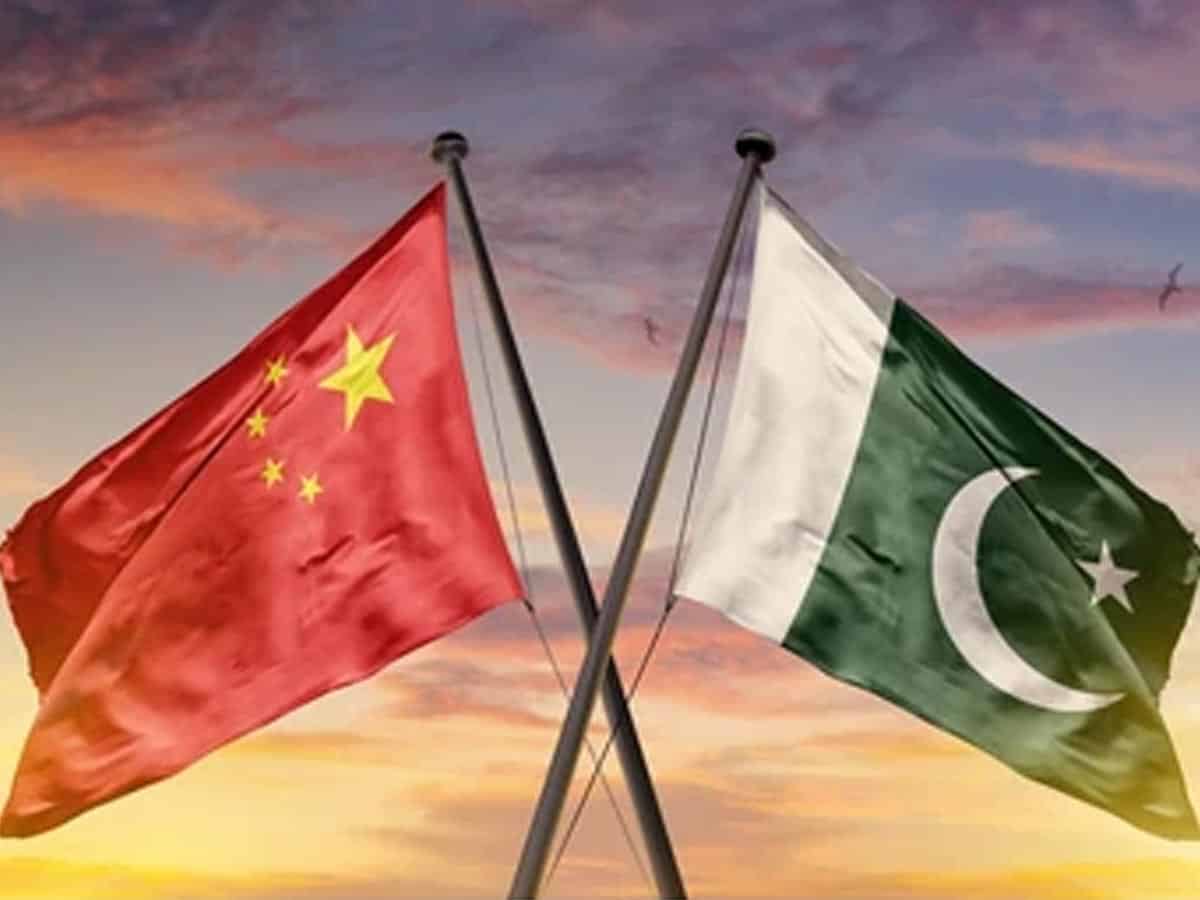
Islamabad: Pakistan, China and Afghanistan have agreed to forge closer economic ties by extending the Beijing-backed China-Pakistan Economic Corridor (CPEC) to Afghanistan to fully harness the country’s potential as a hub for regional connectivity.
Pakistan Foreign Minister Bilawal Bhutto Zardari, his Chinese counterpart Qin Gang and Afghanistan’s Taliban-appointed acting Foreign Minister Mawlawi Amir Khan Muttaqi held the 5th China-Afghanistan-Pakistan Foreign Ministers’ Dialogue, where they also underlined the need to prevent any group from using their territories for terror activities against any nation.
The ministers held in-depth talks on various issues and reached common understandings on good neighbourliness, mutual trust, security cooperation, counterterrorism, connectivity and trade and investment, Chinese Foreign Ministry spokesman Wang Wenbin said in a media briefing in Beijing on Tuesday.
The three countries reiterated their resolve to fully harness Afghanistan’s potential as a hub for regional connectivity and reaffirmed “their commitment to further the trilateral cooperation under the Belt and Road Initiative (BRI), and to jointly extend the China-Pakistan Economic Corridor to Afghanistan,” according to a joint statement issued on Monday, two days after the meeting here on May 6.
The USD 60 billion CPEC aims to connect Pakistan’s Gwadar port in Balochistan with China’s Xinjiang province. India has objected to the CPEC as it traverses through Pakistan-occupied Kashmir (PoK).
The CPEC is officially regarded as the flagship project of China’s multi-billion-dollar Belt and Road Initiative (BRI) – the pet project of President Xi Jinping.
This was the first foreign ministers’ dialogue between the three countries since the Taliban’s return to power in Afghanistan in 2021, and marked the resumption of the mechanism, Wang said.
China asserted that jointly the three countries could set an example of cooperation among neighbours on hotspot issues and promote regional stability and prosperity, Wang said, quoting Chinese Foreign Minister Qin.
The three foreign ministers stressed the importance of existing projects, including CASA-1000, TAPI, Trans-Afghan Railways etc., to enhance regional connectivity and ensure economic uplift and prosperity for the region’s people.
While agreeing to enhance transit trade through Gwadar Port, the three parties emphasised the need to push forward “hard connectivity” in infrastructure and “soft connectivity” in norms and standards while further exploring the facilitating measures for the movement of people and trade activities between the three countries.
In the statement, they stressed the need to prohibit any individual, group or party, including the Tehreek-e-Taliban Pakistan (TTP) and the Eastern Turkistan Islamic Movement (ETIM), a terror group operating in China’s Xinjiang region, to use the territories of the three nations to harm and threaten regional security and interests.
They also underscored the need to refrain from intervening in Afghanistan’s internal affairs and promote peace, stability and reconstruction there.
The three sides asserted the need to tackle security challenges posing a serious threat to regional and global security, directly impacting the entire region’s stability and economic prosperity.
The ministers stressed the importance of exploring realistic pathways towards the revival of the Afghan economy, agreeing to consider further supporting its reconstruction and exploring trilateral investment possibilities for industrialisation and job creation.
They also stressed the importance of sustained and urgent humanitarian support to the people of Afghanistan, underlining that it must remain delinked from any political situation.
The three sides reaffirmed continued cooperation in areas of mutual interest like economic development, capacity building, and improving livelihoods and agreed to strengthen cooperation in the fields such as agriculture, trade, energy, capacity building, and border management, among other areas.
The three countries also urged the international community to assist Afghanistan to counter the cultivation of narcotics effectively and develop alternative crops to enhance its capacity for independent and sustainable development. They called on relevant countries to lift unilateral sanctions against Kabul, return the assets overseas for the benefit of the Afghan people, and create opportunities for economic development and prosperity in the country.
The three sides emphasised their commitment to continuing the trilateral cooperation mechanism, including the Director-General Level Practical Cooperation Dialogue and forging closer, good-neighbourly relations and partnerships.



